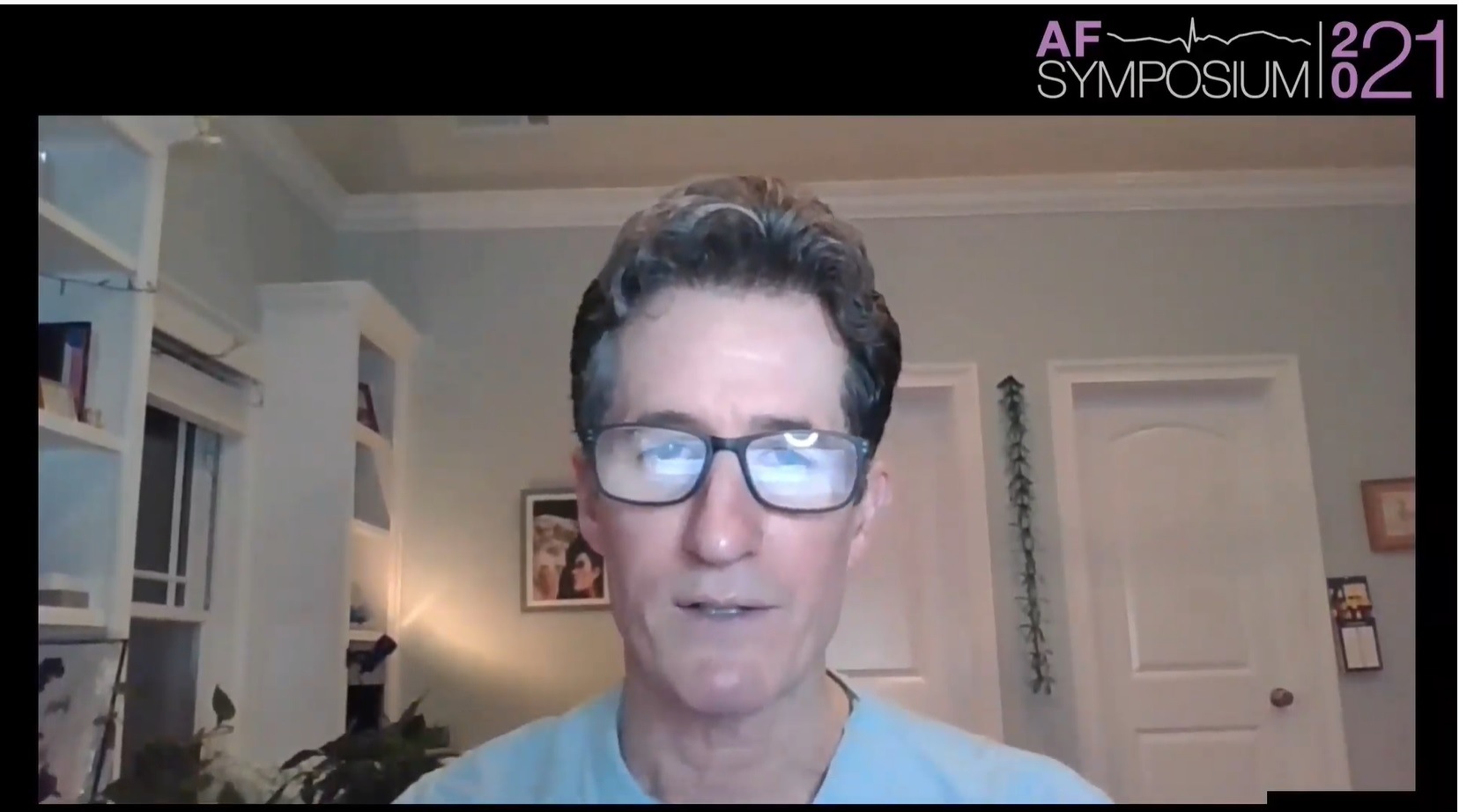
Results of a sub-analysis of the CONVERGE clinical trial, presented during a late-breaking trial session at the digital AF Symposium (29–31 January, virtual), suggest that the hybrid Convergent procedure yields superior outcomes to catheter ablation in patients with long-standing persistent atrial fibrillation (AF).
The Convergent approach is a multi-disciplinary therapy in which a closed-chest epicardial ablation is performed by a cardiothoracic surgeon, complemented by an endocardial catheter ablation by an electrophysiologist.
Results from the CONVERGE trial were first presented at the Heart Rhyhtm Society’s (HRS) 2020 Science Session (8–9 May 2020, virtual). The trial enrolled 153 patients at 27 locations (25 in the USA and two in the UK). Patients were randomised at a rate of 2:1 and received either the hybrid Convergent procedure or an endocardial catheter ablation alone. The results presented at HRS 2020 showed an 18% difference in favour of the hybrid Convergent procedure as compared to endocardial catheter ablation.
David DeLurgio (Emory St Joseph’s Hospital, Atlanta, USA) the CONVERGE study’s principal investigator presented the findings of the sub-study at AF Symposium this week, which sought to determine the outcome of the hybrid procedure when compared to endocardial ablation alone for the treatment of long-standing persistent AF.
“Ablation with endocardial tools alone has been problematic for long-standing persistent AF, and this is well illustrated in multiple clinical trials,” DeLurgio said, adding that the hybrid Convergent procedure combines endocardial and epicardial ablation, “to achieve a more comprehensive PV [pulmonary vein] and extra-PV subset ablation, with documented transmural lesions while minimising the risk of oesophageal injury”.
The sub-study used the same primary effectiveness outcomes as those used in the CONVERGENT trial, namely freedom from AF, atrial tachycardia (AT), and atrial flutter (AFL), absent class I and III anti-arrhythmic drugs (AADs), and the same safety endpoint, incidence of protocol-defined major adverse events (MAEs) as well as secondary endpoints including freedom from AF and a ≥9% burden and symptom reduction.
“The absolute difference is quite striking,” commented DeLurgio, outlining the findings of the study. He added: “There is nearly a 29% absolute reduction in AF or atrial flutter in these patients. The endocardial ablation alone group only had a 37% success rate out to 12 months and this is very consistent with prior trials of ablation of long-standing persistent AF using endocardial tools alone.”
Commenting on the primary outcome, DeLurgio noted that freedom from freedom from atrial arrhythmia with and/or without AADs was significantly higher with the hybrid Convergent approach versus endocardial ablation alone at 12 months, a finding that was sustained through to the 18-month follow-up. This was consistent in patients free from arrhythmia absent of AADs (52.6% in the Convergent arm vs. 25.9% for endocardial ablation alone), those free from atrial arrhythmia absent new or increased dose of failed AADs (65.8 vs. 37%), and those free from atrial arrhythmias regardless of AADs (73.7% vs. 44.4%).
Looking at freedom from cardioversion, the sub-group analysis showed that 71% of the hybrid group required no cardioversions out to 12 months, versus 41% in endocardial ablation alone. Safety endpoints showed that there were no deaths or cardiac perforations or atrial oesophageal fistula in either study arm, DeLurgio noted.
The results were sustained through 18 months of follow-up, DeLurgio commented, adding that there was a significant reduction in AF symptoms recorded by patients, alongside a good safety profile.












